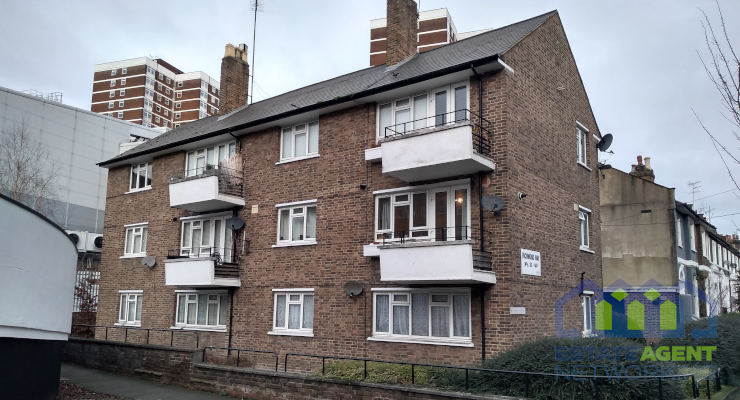What is commonhold? What estate agents need to know
Mark Chick, director of ALEP and a Partner at Bishop & Sewell LLP
On Monday 3 March, the government published a Commonhold White Paper and announced plans to bring the sale of new leasehold flats to an end. So what does this mean for the sale of leasehold properties, both now and over the next few years?
What is commonhold?
Commonhold is a form of property ownership in England and Wales that allows homeowners to own their individual flats or units while collectively managing shared areas, such as hallways and gardens and the main structure of their building. This is done through membership of a company called a Commonhold Association.
Commonhold is a type of freehold ownership under which each flat owner has two related interests – the ownership of the flat itself and also membership of the Commonhold Association. The owner must have both interests in order to have a valid title. Commonhold was introduced by the Commonhold and Leasehold Reform Act 2002 as an alternative to leasehold.
Unlike leasehold, Commonhold has no time limit—owners hold their properties indefinitely rather than for a set lease term. Each property owner automatically becomes a member of a Commonhold Association, which is responsible for managing and maintaining the structure of the building. Technically, this gives owners more control over maintenance and costs-based decision-making as there is no external freeholder or landlord.
Despite its potential advantages, Commonhold has remained extremely rare to date, because of the way in which the current legislation has been drafted – the existing law envisaged only the simplest of cases and not the sort of multi-use developments that are commonplace in the 21st Century. In addition, there was no compulsion to make all new developments Commonhold. It is often said (correctly) that more books have been written about commonhold than there are actual commonhold developments.
However, the Labour government – as evidenced in the commonhold white paper – has reignited interest in commonhold, believing it to be a fairer and more transparent system of homeownership.
What are the pros and cons of commonhold?
Pros
With commonhold, there is no freeholder and no point at which leases expire and revert into another ownership: unlike leasehold, commonhold ownership is indefinite, eliminating the need for lease extensions, or to take collective action to buy the freehold. Property owners are responsible for collectively managing their building which technically gives them greater control – although this can also be seen as a disadvantage (see below).
The commonhold structure is inherently democratic with all flat owners having a vote in the ownership vehicle that sets the maintenance costs for the building and decides how the building should be repaired and managed.
In addition, there is a single document ‘the Commonhold Community Statement’ that sets out how the repairing and other obligations for the development are to work. This has the advantage that there is only one constitutional ‘rulebook’ unlike in a leasehold block where each unit has a lease that can potentially be different.
Technically, there may be more transparency over costs, although the Commonhold regime is not subject to the control of the service charge legislation and therefore once a budget has been set by the Commonhold Association that is ‘it’ and it is not possible to dispute the individual’s share of the costs. This is an item that any (extensive) revision of the law on Commonhold will need to look to resolve.
Cons
Whilst collective management gives the unit owners greater control, there is no one other than the flat owners involved in the decision-making process, and this can have drawbacks. For instance, if a majority of flat owners are reluctant to spend on necessary maintenance that can lead to issues of longer-term disrepair and lack of proper investment.
For instance, in Scotland where blocks of flats are owned collectively as freeholds (as the law is different there), there have been examples of these falling into disrepair as a result of poor management by the flat owners.
It is perhaps a fallacy to suggest that just because the only people with an interest in and responsibility for the maintenance of the building are the flat owners that things are automatically going to be better managed. There are examples of self-managed blocks where significant issues, such as fire safety, have not been properly dealt with causing greater cost and difficulty.
Self managed blocks sometimes also get into difficulties – particularly where the residents do not opt to use third party managers, which is often short sighted, particularly where complex property interests are concerned.
There is a general lack of understanding around Commonhold, specifically a long list of things that need to be ‘fixed’ before it can made be fit for use. On one level this is not surprising as these are fairly technical and legal in nature. One of these is the position on insolvency where all the members of the association would have to pay off all of the debts of the Commonhold Association to restore it and there could be no ‘disclaimer’ of its assets – unlike with an insolvent freehold company.
The Commonhold Community Statement has the advantage that all the ‘rules’ for the development are in a single place. This is good for transparency. However, the disadvantage is that the statement can be amended by a majority vote. If this happens certain owners may be marginalised and unhappy with the outcome. With Leasehold there is little chance of amending the existing grant unless both parties agree. Consider for instance a provision preventing Airbnb type lettings: it could be that this provision could be removed by a number of investors, to the detriment of residents. When a resident buys into a leasehold scheme they know that the lease terms are set, and it is very difficult for the freeholder to move away from them.
Proponents of commonhold see the absence of a freeholder as a benefit (specifically because ground rents are no longer charged), but when problems occur sometimes having a single entity responsible for resolving the issue is a benefit. The freeholder has an economic interest in seeing value maintained in the block and is likely to be prepared to take difficult decisions in relation to management (albeit because these are not at their cost). They also have the ‘big stick’ of forfeiture to act as the ultimate sanction in extreme cases of non-compliance, although it has to be borne in mind that actual cases of forfeiture are extremely rare.
Looking to the future
While ALEP welcomes the publication of the commonhold white paper, we there are a number of challenges that will need to be overcome to make it work properly for all types of development.
The announcement made on 3 March suggests that once commonhold has been introduced, the sale of new leasehold flats will be banned. Such a position will of course only be possible if and when all of the necessary reforms to the commonhold system have taken place, which is likely to take some significant time.
In addition, if there is a proposal to prevent the sale of leasehold flats in the future, we would urge caution around this – specifically both the government and the wider media must be careful not to talk down existing leasehold structures to the detriment of existing flat owners and sales of leasehold flats.









